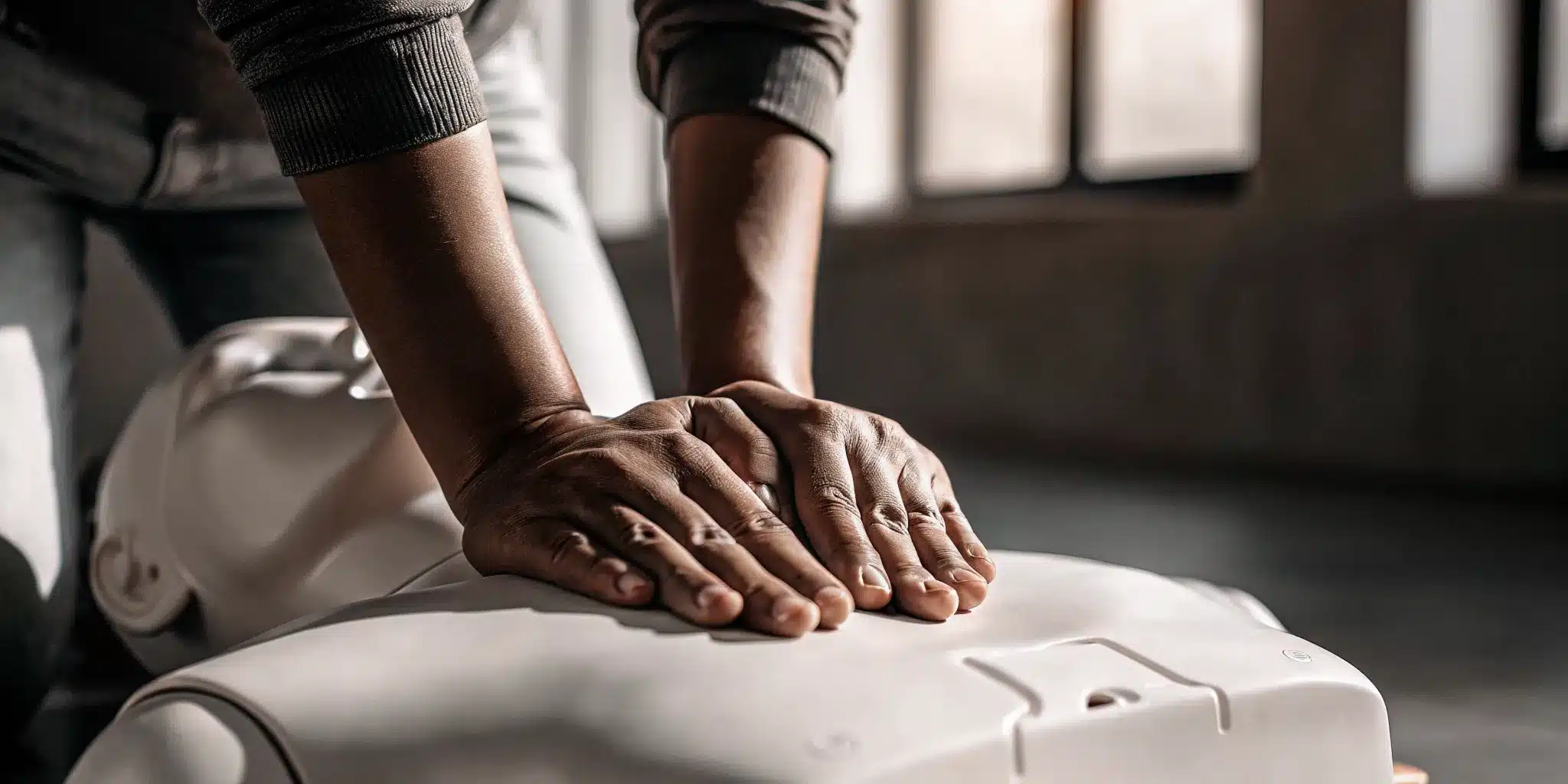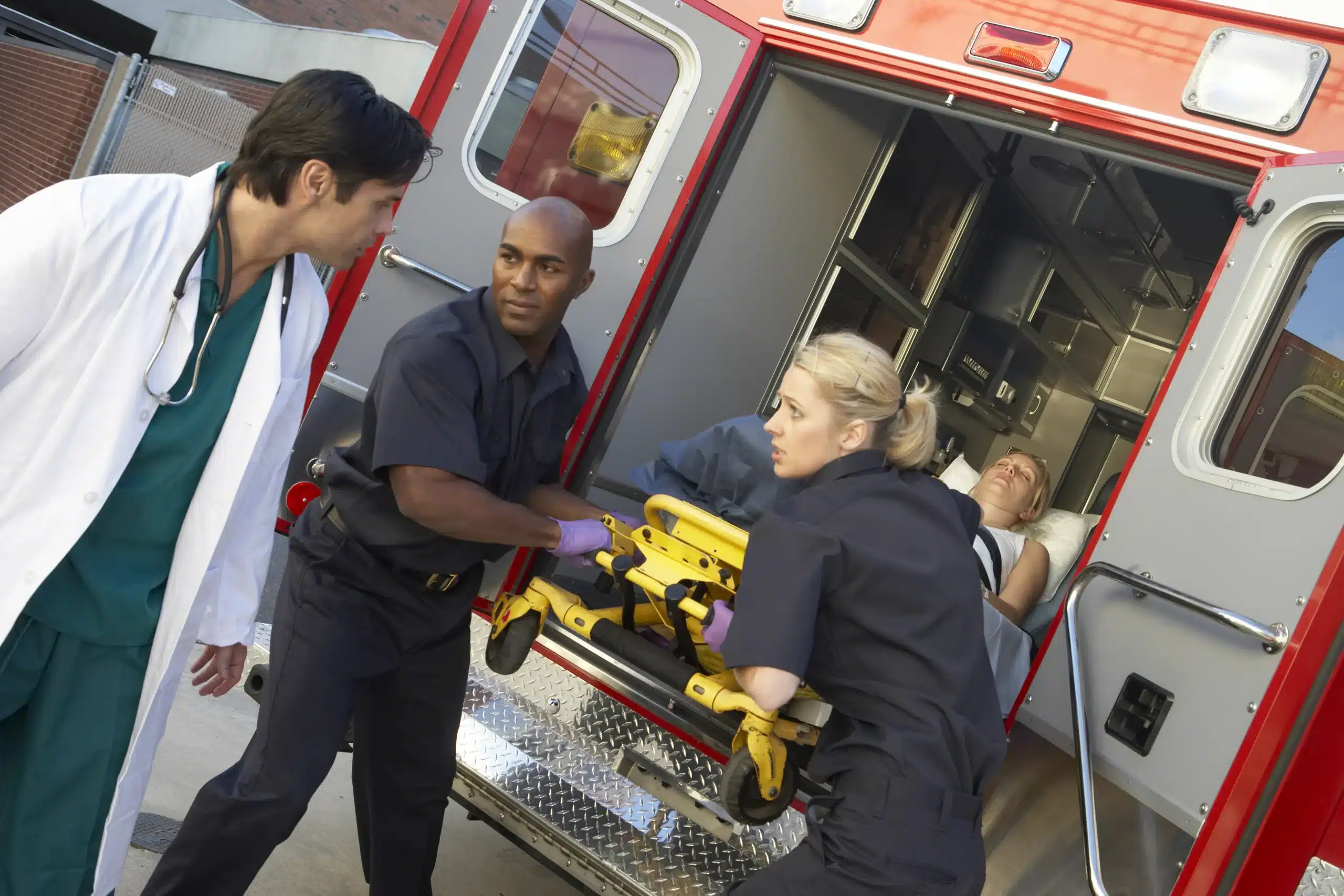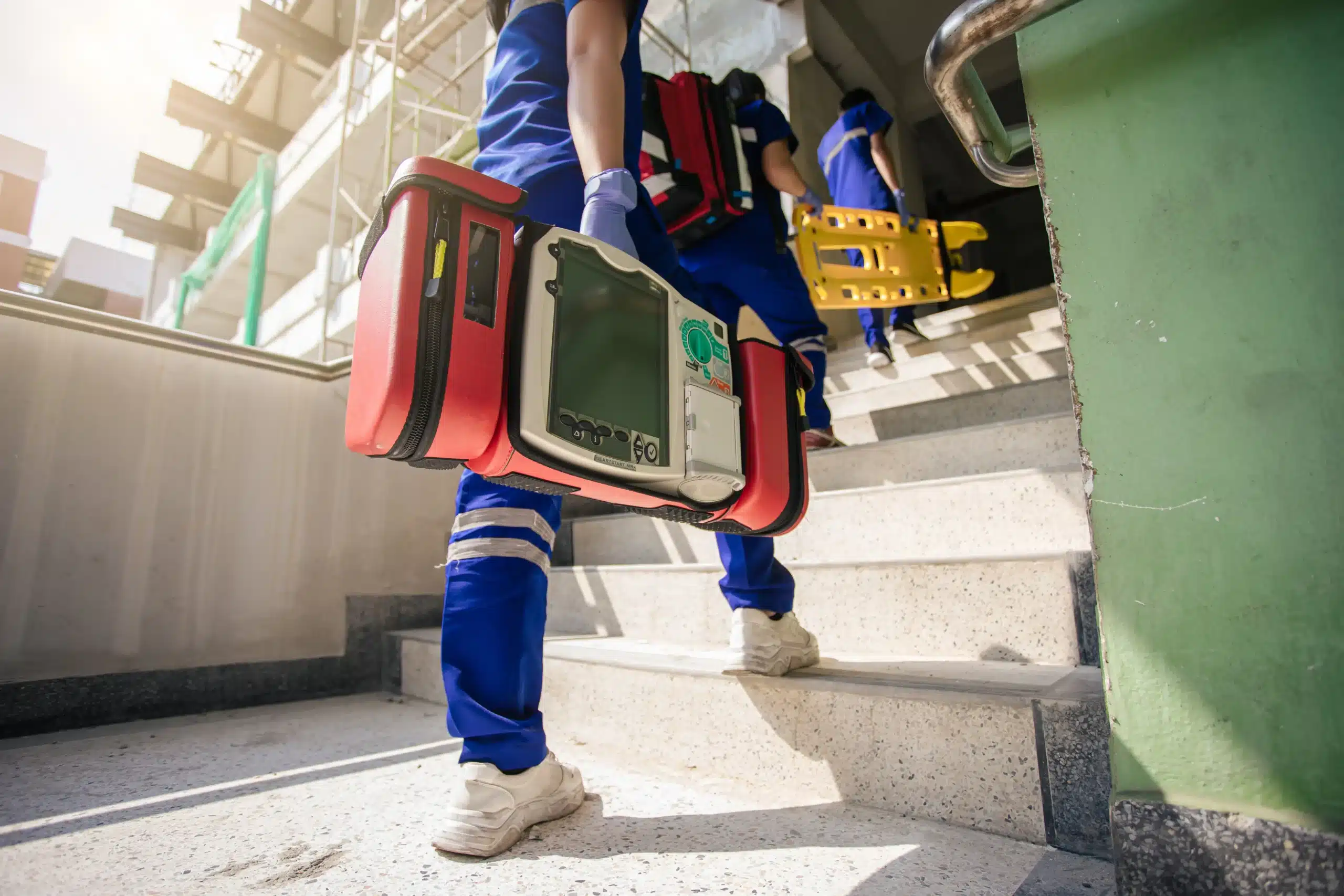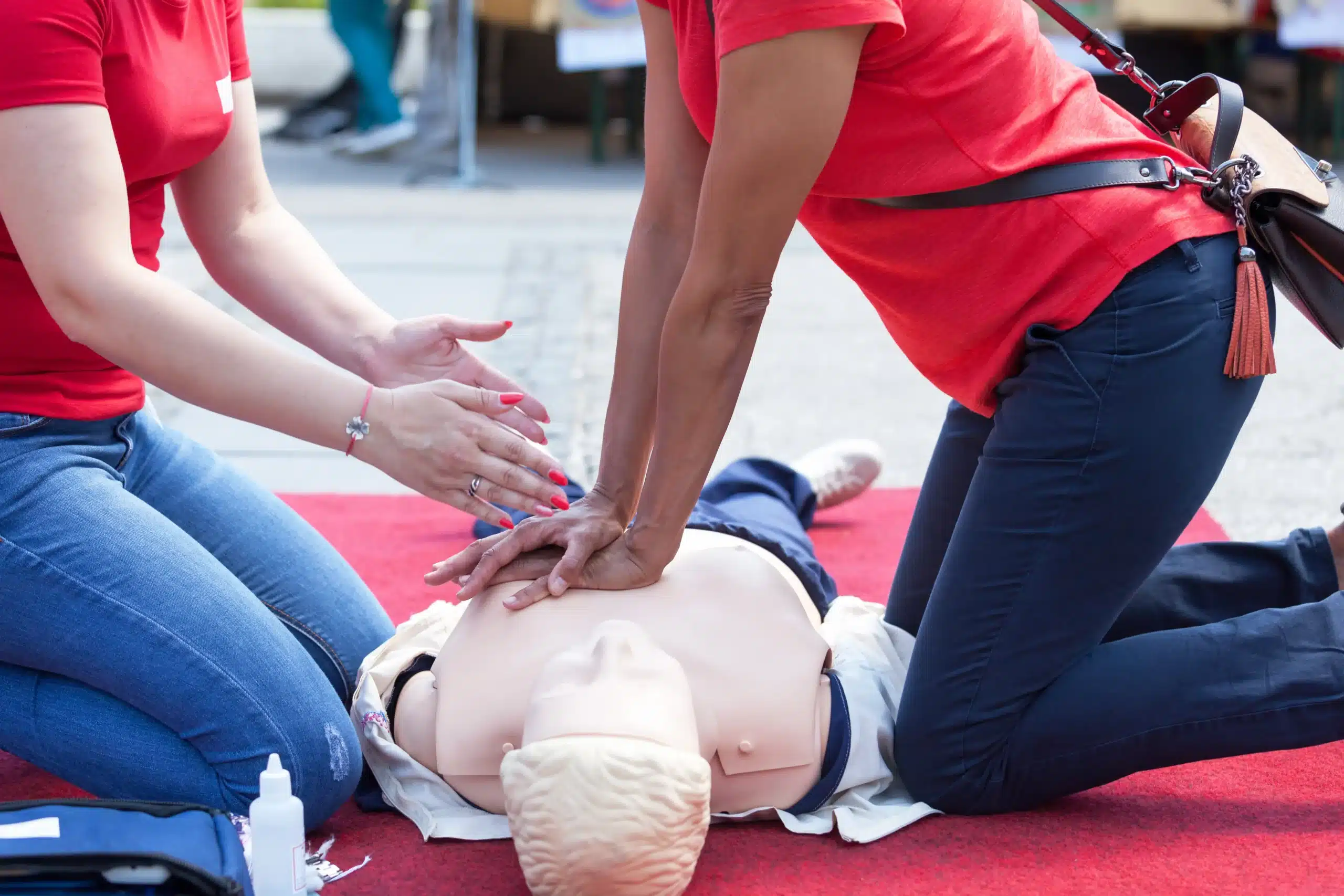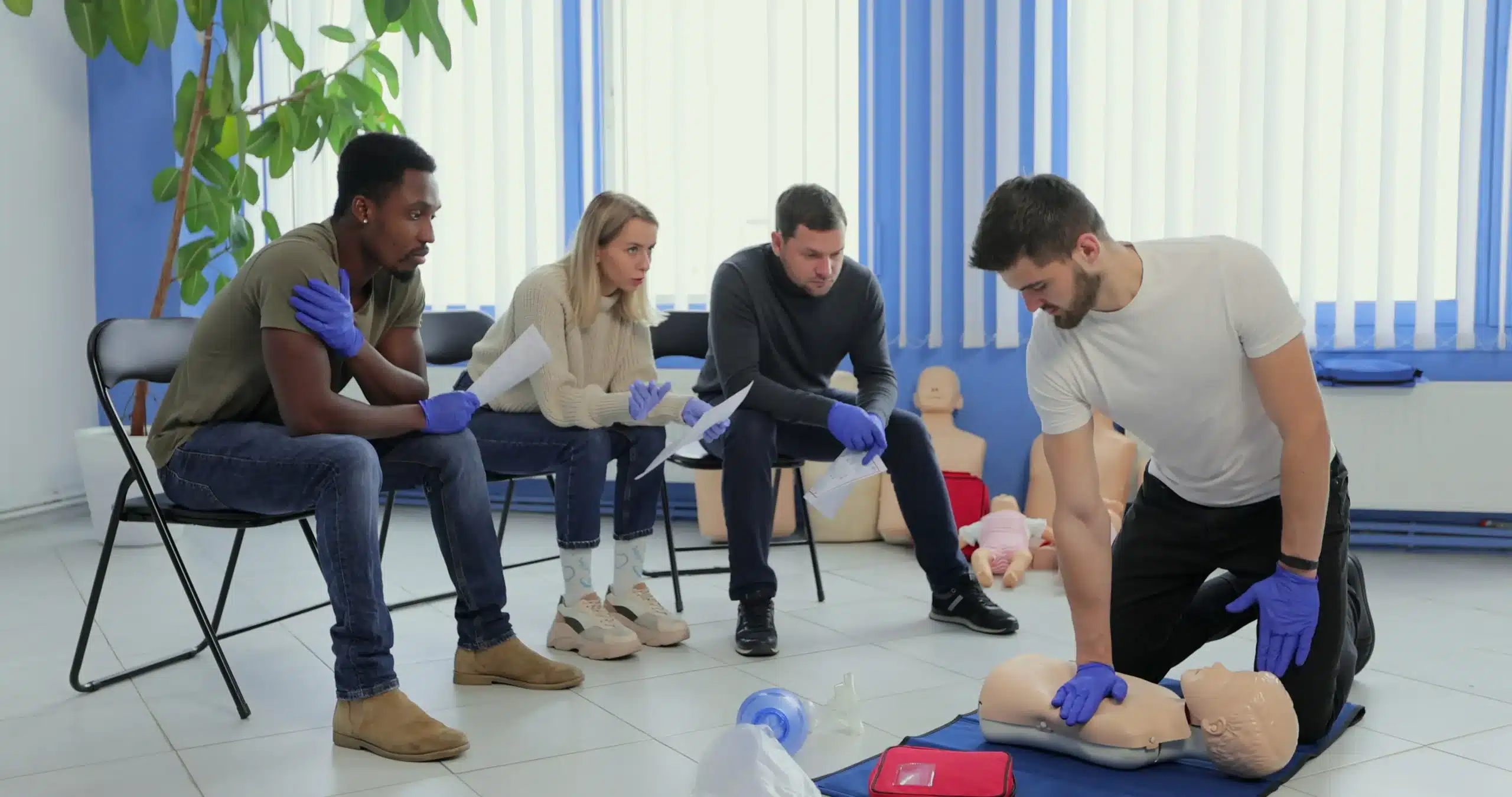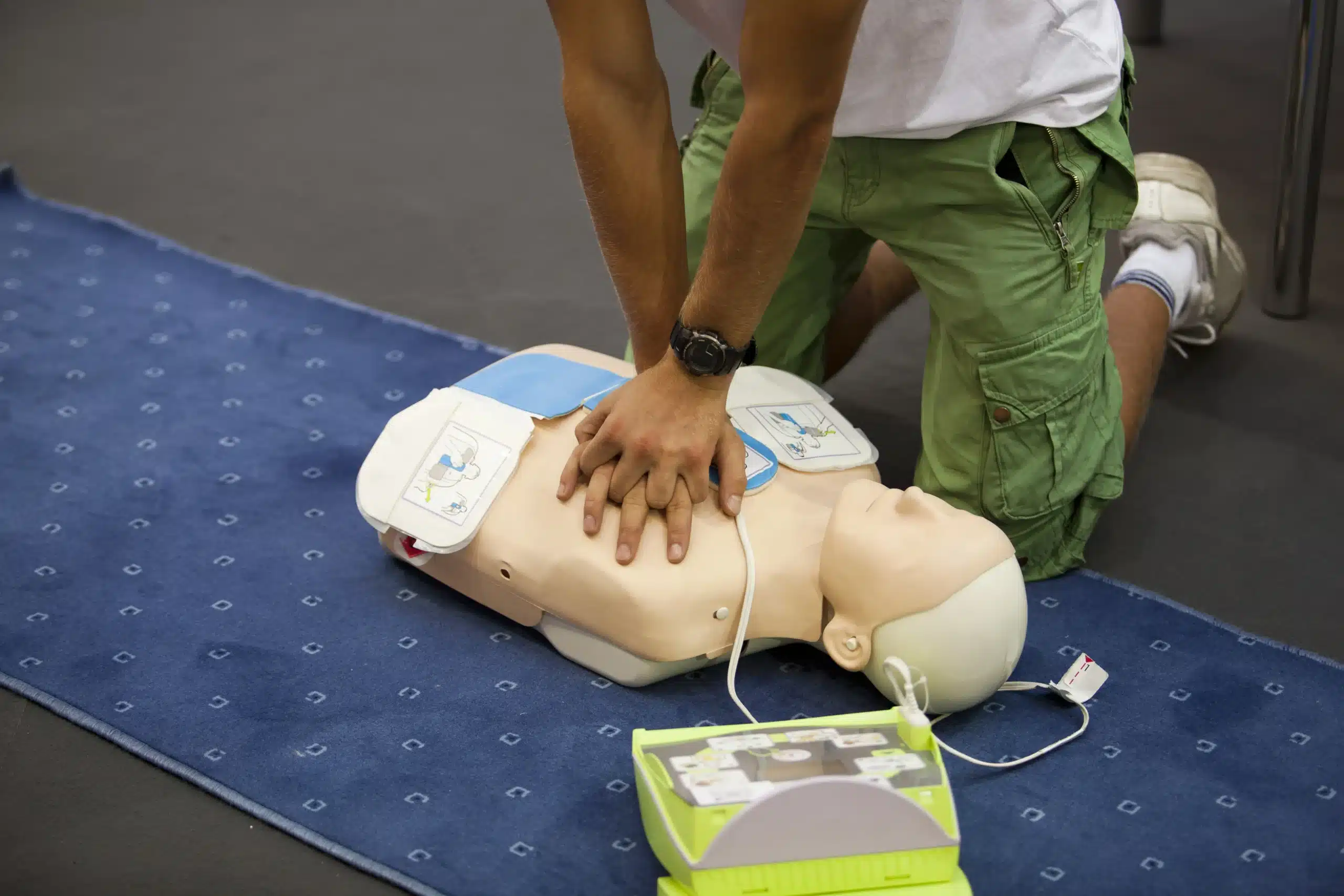Empowering yourself with life-saving skills is one of the most valuable things you can do. If you’re in Martinez, CA, and looking to get CPR certified, this article is your comprehensive guide. We’ll cover everything from the basics of CPR certification Martinez to the different types of courses available, including BLS, ACLS, PALS, and First Aid. We’ll also discuss costs, payment options, and how to find reputable CPR providers in Martinez. Plus, we’ll address common concerns about CPR training, offer practical tips to prepare you for your class, and discuss the importance of maintaining your certification. Let’s equip you with the knowledge and confidence to act in a medical emergency.
Key Takeaways
- CPR certification equips you to handle emergencies: Whether you’re a healthcare provider or simply want to be prepared, CPR training gives you the skills to respond confidently to medical crises. Find a course that suits your needs and schedule.
- Martinez CPR Classes offers convenient and affordable training: With various courses, flexible schedules, and a low-price guarantee, they make getting certified easy. Explore options like BLS, ACLS, PALS, and First Aid. Discounts are available for group training.
- Stay current with your CPR skills: Regularly refresh your training to maintain your qualifications and stay up-to-date with the latest guidelines. This ensures you’re always ready to provide effective assistance when needed.
What is CPR Certification?
CPR (cardiopulmonary resuscitation) is a lifesaving technique used when someone’s breathing or heartbeat has stopped. It combines chest compressions and rescue breaths to keep blood flowing and oxygen going to vital organs. Think of it as manually keeping the body functioning until professional medical help arrives. CPR can dramatically increase someone’s chances of survival during cardiac arrest.
While you don’t need formal CPR training to perform CPR in an emergency, taking a CPR course ensures you’re properly trained. These courses teach you the correct techniques and build your confidence to act quickly and effectively under pressure. The American Heart Association (AHA) offers a variety of CPR certification courses designed for both healthcare providers and everyday people. These courses cover essential skills like chest compressions, giving rescue breaths, and using an AED (automated external defibrillator).
After successfully completing an AHA CPR course, you’ll receive a certification card, usually valid for two years. This card shows you’ve learned the most up-to-date CPR guidelines and techniques. Having this formal training can make a real difference in a crisis, giving you the skills and confidence to potentially save a life.
CPR Certification Courses in Martinez
CPR certification gives you the skills to respond confidently to medical emergencies. Martinez offers various courses designed for different needs, from basic life support to advanced cardiac care. Let’s explore some key certifications available in Martinez:
BLS Certification
BLS (Basic Life Support) certification provides the foundational skills to respond to life-threatening emergencies. You’ll learn to recognize cardiac arrest, administer high-quality CPR, and use an automated external defibrillator (AED). BLS training emphasizes effective chest compressions, rescue breaths, and teamwork during resuscitation. This course is ideal for healthcare providers, first responders, and anyone interested in essential life-saving skills. It also covers the updated steps in CPR and reviews training for those requiring recertification.
ACLS Certification
ACLS (Advanced Cardiovascular Life Support) certification builds on the fundamentals of BLS and explores advanced techniques for managing cardiovascular emergencies. ACLS courses cover a broader range of topics, including airway management, rhythm recognition, and pharmacological interventions. This certification is crucial for healthcare professionals who regularly encounter cardiac emergencies in hospitals or pre-hospital settings. Martinez CPR Classes offers these advanced courses, empowering healthcare providers in the community.
PALS Certification
PALS (Pediatric Advanced Life Support) certification focuses on the specialized skills needed to provide quality care to infants and children facing respiratory or cardiovascular emergencies. PALS training covers pediatric assessment, airway management, and fluid resuscitation. This certification is essential for healthcare providers working in pediatrics, emergency medicine, and intensive care units. Daily classes are available, making it convenient for busy professionals to get certified.
First Aid Certification
First Aid certification teaches you how to respond to various medical emergencies, from minor injuries to more serious situations. You’ll learn practical skills like wound care, bleeding control, and managing fractures and sprains. Combined with CPR training, First Aid certification empowers you to provide immediate care and stabilize individuals until professional help arrives. This certification is valuable for anyone, regardless of professional background. The course covers a combination of artificial respiration and artificial circulation for basic life support techniques, including AED skills using practice AEDs.
Choose the Right CPR Course
Picking the right CPR course is the first step towards becoming a confident lifesaver. With different levels and formats available, it’s important to consider your specific needs and goals.
Assess Your Needs
Before you jump into a course, think about why you need CPR certification. Are you a healthcare provider needing to maintain your license? Or are you a parent or caregiver wanting to learn basic life-saving skills? Healthcare providers often require advanced training, like the BLS CPR classes offered in Martinez, which cover in-depth content and techniques. If you’re learning CPR for personal knowledge or general safety, a basic course covering essential skills might be perfect.
Course Duration and Format
CPR courses come in different formats and lengths. Shorter, more focused courses can be just as effective for teaching core CPR skills. Research shows that even a 30-minute CPR and AED training session can be effective for training lay responders and maintaining those skills. Consider your schedule and learning style when choosing a course format. Online options offer flexibility, while in-person classes provide hands-on practice and direct interaction with an instructor.
Instructor Qualifications
A qualified instructor can make all the difference in your CPR training. Look for instructors certified by a recognized organization like the American Heart Association. Experienced instructors can provide targeted feedback, which is crucial for developing and mastering high-quality CPR techniques. They can also offer insights into real-world scenarios and answer any questions you may have. The use of feedback devices and simulations is also becoming increasingly important in modern CPR training, ensuring you learn to perform compressions effectively and confidently. Research supports the use of these tools for improving CPR performance.
Get CPR Certified
Getting CPR certified is straightforward and empowers you to make a real difference in emergencies. Here’s what you can expect:
Register and Prepare
First, find a class that fits your schedule. Martinez CPR Classes offers daily CPR courses from 8 am to 10 pm, covering everything from basic CPR to advanced certifications like BLS, ACLS, PALS, and First Aid. Register online through their website and review any pre-course materials they provide. This might include basic CPR steps or information about the course format. Knowing what to expect will help you feel prepared and ready to learn. Check out their low price guarantee for the best value.
Skills Testing
The skills test is a key part of becoming CPR certified. You’ll practice your CPR techniques on a voice-activated mannequin, providing a realistic training scenario in a safe environment. While an instructor won’t be in the room during the test, support is available by phone if needed. This helps build your confidence and ensures you can perform CPR effectively in a real emergency.
Get Your Certification Card
The best part? You’ll receive your CPR certification card the same day you complete the course. You’ll leave class ready to use your new skills, which is especially helpful if you need proof of certification for your job or volunteer work. This valuable credential is something you can confidently add to your resume.
CPR Certification Costs & Payment
Knowing the cost and payment options upfront makes planning for your CPR training easier. We’ll break down what you can expect at Martinez CPR Classes.
Course Prices
We believe that life-saving skills should be accessible to everyone, which is why we offer competitive pricing on all our courses. Check our website for the most up-to-date pricing on BLS Certification, ACLS Certification, PALS Certification, and First Aid Certification. Our commitment to affordability helps ensure that cost isn’t a barrier to learning these essential skills.
Group Discounts & Low-Price Guarantee
Planning CPR training for a group? We offer discounts for group CPR classes, making it a cost-effective solution for businesses, community groups, or families who want to train together. We also have a low-price guarantee in Contra Costa County, so you can be confident you’re getting the best value. Contact us for a quote and let us help you find the most affordable option.
Payment Options
We understand that flexibility is important, so we offer various payment options to make registration convenient. Our classes are available daily, from 8 am to 10 pm, and our customer service team is available seven days a week to answer any questions. We want to make getting your CPR certification as smooth and straightforward as possible.
Top CPR Providers in Martinez
Finding the right CPR training can feel overwhelming, so we’ve compiled a list of providers in Martinez to simplify your search. We’ve included key details about each to help you make an informed decision.
Martinez CPR Classes
Martinez CPR Classes offers a comprehensive range of American Heart Association (AHA) courses, including BLS, ACLS, PALS, and First Aid. They’re committed to providing affordable training with a low-price guarantee and offer convenient scheduling with classes available daily. As a woman-owned business, they also provide discounts for group training. Learn more about their BLS certification on their website.
Safety Training Seminars
Located in Martinez, Safety Training Seminars provides AHA-certified courses in CPR, BLS, ACLS, PALS, and First Aid. They focus on community safety, empowering individuals with the skills to handle emergencies. You can find more information and read reviews on their Yelp page.
CPR/First Aid by Josh Sauberman
Josh Sauberman offers CPR and First Aid certification classes in Martinez. His courses focus on practical, life-saving skills. You may need to contact the instructor directly for details about specific certifications offered.
Bay Area CPR
Bay Area CPR, operating through Safety Training Seminars in Martinez, offers AHA-certified CPR, BLS, ACLS, and PALS classes, in addition to First Aid training. They offer the convenience of on-site training, bringing the instruction to your preferred location.
CPR Skills You’ll Learn
This section outlines the essential CPR skills you’ll gain through different certification levels. Whether you’re a concerned citizen or a healthcare professional, understanding these skills is crucial for responding effectively to emergencies.
Basic & Hands-Only CPR
Basic CPR training equips you with the fundamental skills to assist someone experiencing cardiac arrest. You’ll learn how to recognize the signs of a cardiac emergency and perform chest compressions and rescue breaths. This training emphasizes the importance of immediate action and provides the confidence to respond effectively in critical situations. Hands-Only CPR is a simplified version focusing solely on chest compressions, empowering anyone to provide assistance even without formal training. This technique is particularly valuable for bystanders who witness a sudden cardiac arrest. Learn more about CPR training.
AED & First Aid
Beyond basic CPR, many courses incorporate training on using an Automated External Defibrillator (AED). You’ll learn how to operate an AED safely and effectively, further increasing the chances of survival for someone experiencing cardiac arrest. AEDs are becoming increasingly common in public spaces, making this skill even more valuable. In addition to CPR and AED training, many programs include First Aid certification. This component covers essential skills for managing various medical emergencies, from minor injuries like cuts and burns to more serious situations like choking or allergic reactions.
Advanced Life Support
For healthcare providers and those seeking more advanced training, programs like Basic Life Support (BLS) certification offer a comprehensive approach to managing life-threatening emergencies. BLS certification builds upon the foundation of basic CPR, adding skills like using a bag-valve mask for ventilation and working effectively as part of a medical team. These advanced skills are essential for professionals who regularly encounter cardiac emergencies and other critical situations.
Maintain Your CPR Certification
Keeping your CPR skills sharp is just as important as getting certified in the first place. Knowing what to expect when it’s time to renew and how to stay on top of the latest techniques will help you feel confident in your abilities.
Renewal Requirements
CPR certifications are typically valid for two years. After that, you’ll need to renew to maintain your qualifications and stay current. This ensures you’re always ready to respond effectively in an emergency. Think of it like a driver’s license—you need to renew it periodically. Check with your certifying organization or Martinez CPR Classes for specific renewal requirements.
Continuing Education
Even after you’re certified, continuing education is key. The world of CPR is constantly evolving, with new research and techniques emerging all the time. Staying informed about best practices through ongoing training will help you provide the most effective care. Plus, regular practice with feedback dramatically improves CPR performance, as shown in studies on CPR training. This means that refreshing your skills often is crucial. New technologies, like virtual reality and mobile apps, are making it easier than ever to access information and practice. Explore resources like the California State CPR Guidelines to stay informed.
Address CPR Training Concerns
It’s normal to hesitate before signing up for a CPR class. Many people share the same concerns, and understanding how to overcome them can empower you to take this life-saving step.
Time Commitment & Scheduling
One of the most common concerns is the time commitment. People with busy schedules often worry about fitting a class into their lives. However, there are now more flexible options than ever before. A short 30-minute CPR and AED training session can be as effective as a longer course. Research shows that these shorter sessions are just as effective at teaching and maintaining essential CPR skills over six months. At Martinez CPR Classes, we offer various course schedules to accommodate your busy life, including daily certification courses.
Fear of Incorrect Performance
Another common worry is the fear of performing CPR incorrectly. It’s natural to feel apprehensive about making a mistake in a high-pressure situation. Remember that any attempt at CPR is better than none. The goal is to provide immediate assistance until professional help arrives. Our instructors at Martinez CPR Classes prioritize a supportive learning environment where you can practice and build confidence. We understand that concerns about disease transmission, legal repercussions, or simply not knowing what to do can be barriers. We address these concerns directly in our training.
Language Barriers
If English isn’t your first language, you might be concerned about understanding the course material. This is a valid concern, and finding a class taught in your native language is important for effective learning. While Martinez CPR Classes primarily offers instruction in English, we are committed to helping you find resources that meet your language needs. We can connect you with other training centers or provide information about alternative learning materials. The importance of accessible training is highlighted in this research on CPR performance. We encourage you to contact us to discuss your specific needs.
Prepare for Your CPR Course
Getting ready for your CPR class can make a big difference in how much you get out of it. Here’s what you should know before you go:
What to Expect
CPR courses in Martinez are based on the American Heart Association (AHA) guidelines and cover essential lifesaving skills. At Martinez CPR Classes, we offer various courses, including CPR, BLS, ACLS, PALS, and First Aid. We understand busy schedules, so we offer classes daily from 8 am to 10 pm. This flexibility makes it easier to find a time that works for you.
What to Bring
While you don’t need to bring much to your CPR class, thinking about your background and the course you’ve chosen is helpful. If you’re a healthcare provider, you might want a course that dives deeper into advanced techniques. If you’re not in healthcare, a basic CPR course covering the essentials might be perfect. It’s always a good idea to check with your chosen training center—like Martinez CPR Classes—to see if there are any specific materials or prerequisites.
Certification Tips
Want to ace your skills test? Watch any pre-course videos your training center provides. Some studies show that doing this can significantly improve your chances of success. Online courses vary in length. For example, a Basic Life Support (BLS) course usually takes 1–2 hours, while Advanced Cardiovascular Life Support (ACLS) or Pediatric Advanced Life Support (PALS) courses can take 3–4 hours. Also, using feedback devices during practice can really refine your CPR technique. These devices give you real-time feedback, helping you master those critical skills. The AHA now requires the use of feedback devices in all of its training courses.
Related Articles
- Why CPR is Important in Healthcare – Martinez CPR Classes
- BLS CPR Courses in Martinez, CA – Martinez CPR Classes
- AHA ACLS Classes in Martinez, CA – Martinez CPR Classes
- AHA PALS Classes in Martinez, CA – Martinez CPR Classes
- Why Workplace CPR & First-Aid Training Matters
Frequently Asked Questions
How do I choose between BLS, ACLS, and PALS? It depends on your specific needs. BLS is the foundation for everyone, while ACLS is geared towards healthcare professionals dealing with adult cardiac emergencies. PALS focuses on the specialized care of infants and children. If you’re unsure which course is right for you, consider your current role and future career goals. For example, if you’re a teacher, BLS and First Aid might be sufficient. However, if you plan to work in a hospital, ACLS or PALS might be necessary.
What if I’m nervous about performing CPR in a real emergency? It’s completely normal to feel that way! CPR classes are designed to build your confidence through hands-on practice and guidance from experienced instructors. Remember, any attempt at CPR is better than none. The training provides you with the skills and knowledge to act quickly and effectively, increasing the chances of a positive outcome.
Are there online CPR certification options available in Martinez? While some providers may offer online components, CPR certification typically involves an in-person skills test. This hands-on evaluation ensures you can effectively perform CPR techniques. Check with specific providers like Martinez CPR Classes for information on blended learning options that might combine online coursework with in-person skills sessions.
How can I find CPR classes that fit my schedule? Many training centers offer flexible scheduling to accommodate busy lifestyles. Look for providers like Martinez CPR Classes that offer weekend or evening classes. Some centers also offer accelerated courses that cover the essential material in a shorter timeframe. Don’t hesitate to contact different providers to discuss your scheduling needs.
What if my workplace requires group CPR training? Several CPR training providers, including Martinez CPR Classes, offer discounts for group bookings. This can be a cost-effective way to train your team and ensure everyone is prepared to respond to emergencies. Contact providers directly to discuss group rates and customize a training plan that meets your organization’s specific requirements.
This article was written for free by MEGA SEO.
